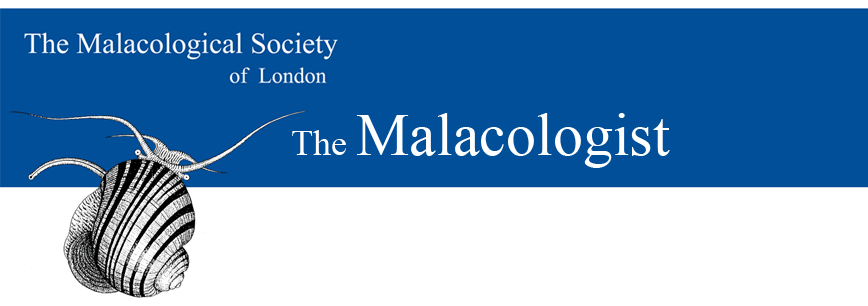

Francesca Pilotto, University of Inserbia of Varese, Italy
The project supported by the Research Grant of the Malacological Society permitted to me analyse the fouling of native freshwater bivalves (Unionidae) by zebra mussels (Dreissena polymorpha) in Britain. The research was conducted at the Department of Zoology of the University of Cambridge from the 1 st of July to the 10 th of September 2008, with the supervision of Dr. David Aldridge.
The zebra mussel is considered as one of the worst invasive alien species of freshwater systems, since it is responsible of severe economic and ecological costs. In fact, through its byssal threads, it can attach to every kind of solid substrate: from water pipes causing the obstruction of pipelines to the shells of other mussels. Fouling of native freshwater mussels by zebra mussels is considered a major driving force for declines in both Europe and North America. While the effects of zebra mussels on unionids have been subject of numerous studies in north America, little attention has been focused on the extent and consequences of fouling on European unionids. The aim of this study was to investigate the current extent of zebra mussels fouling on unionids in 3 freshwater bodies in Britain and its effect on both unionids and zebra mussels.
Unionids populations were sampled during hand search surveys in July-August 2008 in 3 water-bodies: River Great Ouse (Cambridgeshire), Barden Lake (Kent) and River Stour (Suffolk). All live collected unionids were identified and the number of fouled and unfouled mussels was recorded. The data on the extent of zebra mussel fouling on unionids gathered in this study were compared to those obtained in previous works by Dr. Aldridge. Samples of Anodonta anatina and Unio pictorum were transported to the laboratory for further analysis, along with zebra mussels attached to native mussels or randomly collected from a wall. The following data were analysed: biometrics, wet weight, dry tissue weight, dry shell weight, surface area of the unionids shells emerging above the sediment, orientation of zebra mussels on unionids shells, glycogen content in the tissues of zebra mussels and unionids.
The results showed that zebra mussel fouling has increased significantly during the last few years, causing an increase in unionid mortality. Moreover, unionids species are differently affected by zebra mussel fouling, owing to their different burrowing behaviours. The examination of D. polymorpha-unionid association showed that it was disadvantageous to unionids but advantageous to D. polymorpha, indicating a parasitic relationship. In fact, while the body condition of unionids was negatively affected by the fouling, zebra mussels attached to unionids were in better condition than those attached to the wall. Zebra mussels mostly oriented their siphons towards the unionids’ siphons, and so likely could profit from the water currents generated by their host. However, their body condition was found negatively correlated to their density on unionids shell, indicating the effect of density-dependent intraspecific competition. The results, here briefly summarized, will be reported in two scientific papers.
I would like to thank the Malacological Society for providing me with this wonderful experience, which has greatly enhanced my enthusiasm for molluscs!